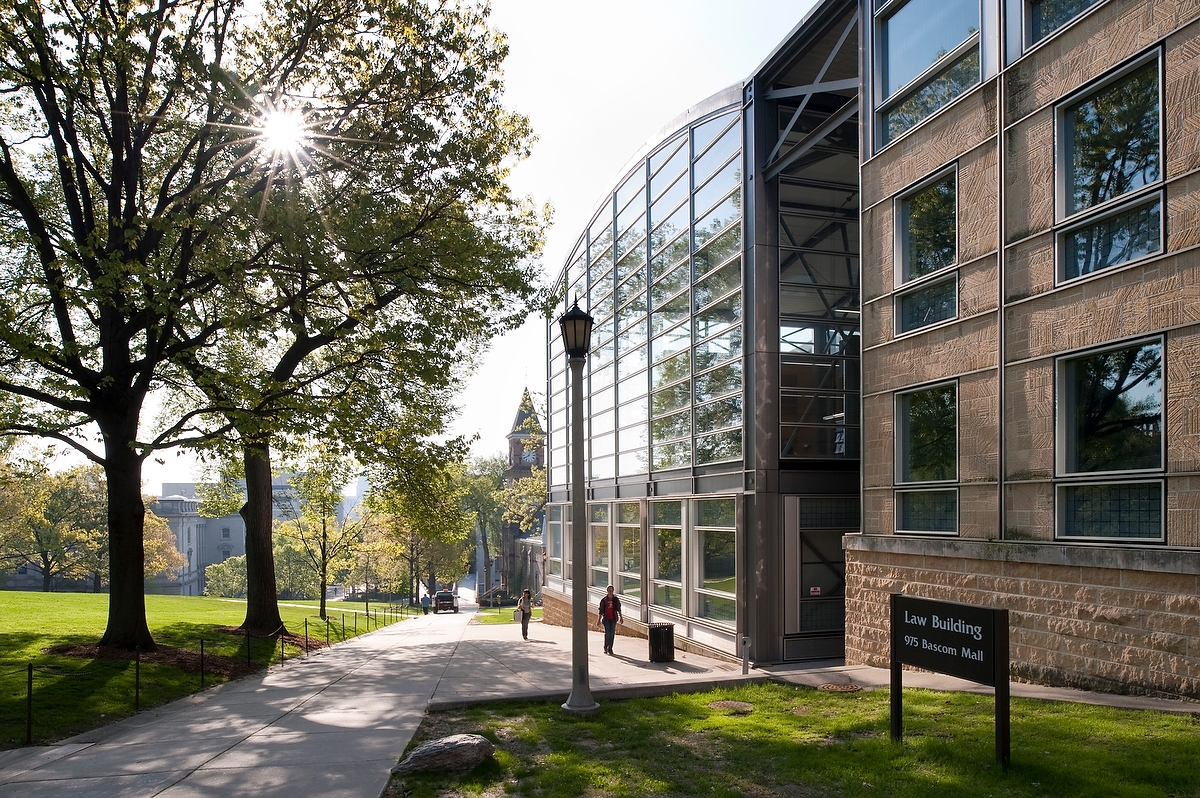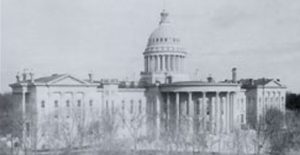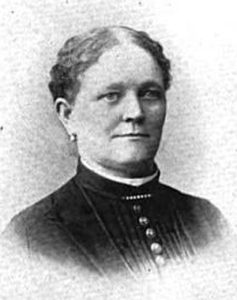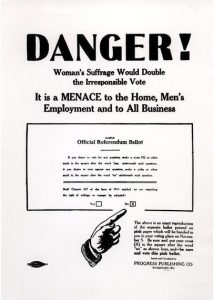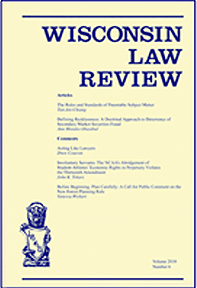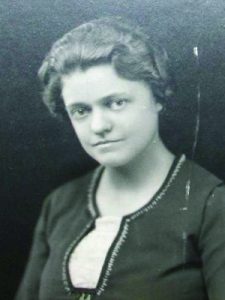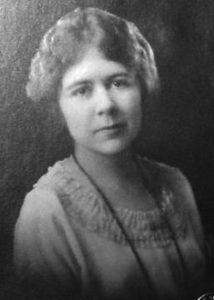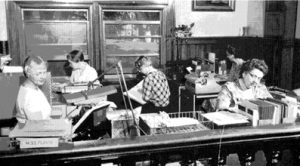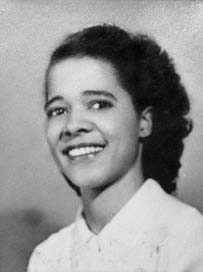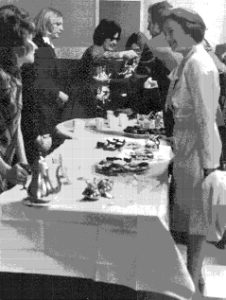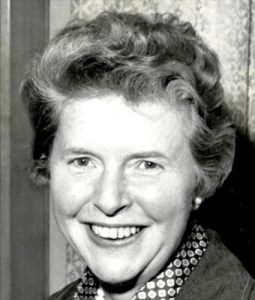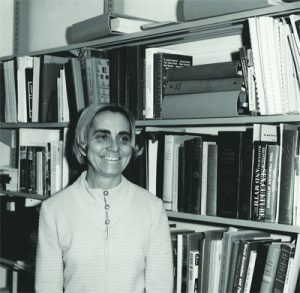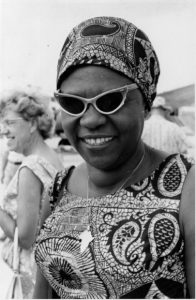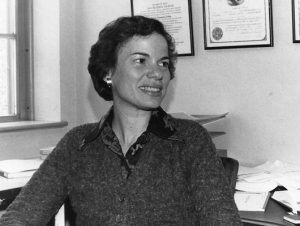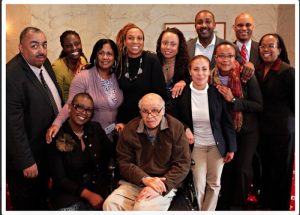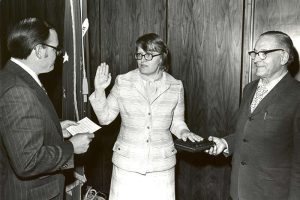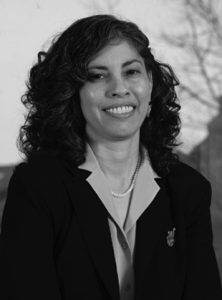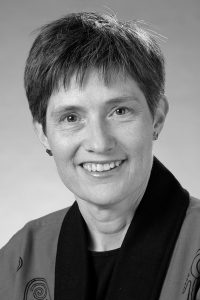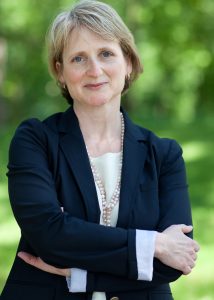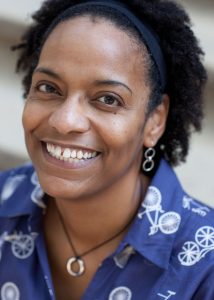Our interactive timeline features UW Law women who have made history for their outstanding contributions to Wisconsin’s legal community and beyond.
1877
Women Gained Entry into State Bar
On March 22, 1877, the Wisconsin legislature passed a bill prohibiting denial of admission to the state bar based on gender.
1885
Belle Case La Follette Graduated
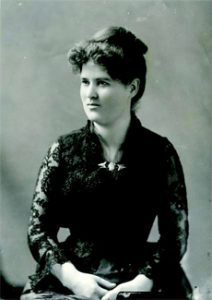
Belle Case La Follette was the first woman to graduate from UW Law School. Though she never practiced law, La Follette held a prominent place in Wisconsin history—as a women’s suffrage activist, member of the women’s peace party, and co-founder (with husband Robert “Fighting Bob” La Follette) of La Follette’s Weekly Magazine, now The Progressive. Read more about Belle La Follette and five other Law School trailblazers in the Spring 2013 issue of the Gargoyle.
1889
Kate Pier Argued before State Supreme Court
Two years after graduating from law school in 1887, Kate Pier McIntosh became the first woman to argue—and win—a case before the Wisconsin Supreme Court.
1891
Kate Hamilton Pier: 1st Judicial Appointment
Kate Hamilton Pier, Kate McIntosh’s mother, was the first woman in the U.S. appointed to serve in a judicial capacity, as commissioner of Milwaukee County Circuit Court. Pier’s daughters Kate, Caroline and Harriet also attended UW Law School. Mother Kate and her three daughters were four of only six women who received their degrees between 1887 and 1891. Kate Hamilton Pier was also the first woman to cast a vote in Fond du Lac County, according to the Merrill Herald. Read her 1925 obituary at the Wisconsin Historical Society.
1919
Wisconsin Ratified the 19th Amendment
Wisconsin became the first state to ratify the 19th Amendment granting national suffrage to women. “Bowing to what it now regarded as inevitable, the Wisconsin legislature ratified the amendment giving women the right to vote in federal elections; the Wisconsin constitution was not amended until 1934.” —Wisconsin Historical Society: A Handbook for Using Historical Documents to Improve Students’ Thinking Skills in the Secondary Grades (PDF)
1920
Wisconsin Law Review Founded
UW Law School students and faculty founded the Wisconsin Law Review. In 1935, students were designated as its sole editors, and in 1940, Harriet Zetterberg ’41, became the publication’s first female editor-in-chief.
1922
Dorothy Walker Elected District Attorney
After graduating from UW Law School in 1921 as the only woman in her class, Dorothy Walker was elected district attorney of Columbia County. Twenty-three years old at the time, she is believed to be the first female D.A. in the nation. In 1974, she received the Distinguished Alumni Faculty Award from UW Law School Alumni Association, the first female to do so.
1924
Miriam Louise Frye Led County Bar
Miriam Louise Frye ’24 became the first woman president of the Winnebago County Bar Association. In accepting the office, she expressed her deep appreciation, saying she “[would] not try to turn the office into a sewing circle.”
1936
Four Girls, 400 Fellows
June Spearbraker Zwickey received her law degree in 1936. In a Spring 1988 Gargoyle essay (PDF), she described her early experiences in the Law School: “The first couple of years were somewhat uncomfortable. Four girls were conspicuous among 400 fellows. However, when it became apparent that we were all there to learn, that the girls were not there primarily to snare a husband, and that we did not fall over in a dead faint at the use of four-letter words, the atmosphere became more relaxed.”
1951
Vel Phillips: A Career of Firsts
Vel Phillips, the first African American woman to graduate from the Law School, received her law degree in 1951. She went on to build a career full of firsts. For example, she became the first woman and the first African American to serve in a statewide elected office, when in 1978 she was elected Secretary of State of Wisconsin. Read more about Vel Phillips and five other Law School trailblazers in the Spring 2013 of the Gargoyle.
Watch our “Three Minutes with UW-Madison Alum Vel Philips” interview on YouTube.
1954
Lawyer’s Wives of Wisconsin
Lawyer’s Wives of Wisconsin launched in 1954. The organization was the second of its kind in the nation, according to the state bar. It later changed its name to Legal Auxiliary of Wisconsin, and membership was open to past or present spouses of any past or present member of the State Bar of Wisconsin.
1955
Catherine Cleary Led the Way for Women in Business
“In 1955, Catherine Cleary ’43 became the first woman named to the Northwestern Mutual Life Insurance board. Later she became the first woman to serve on the boards of national firms like General Motors and AT&T. She also served as a board member for the Kohler Co., Kraft and other companies.” From Catherine Cleary’s obituary, Milwaukee Journal-Sentinel.
1959
Marygold Melli: UW Law School’s First Female Professor
Marygold Melli ’50 became the first female professor of UW Law School. Melli went on to shape both pedagogy and policy in family law, particularly in the areas of child support and shared child custody. She later laid the groundwork for the Law School’s family law concentration, adding a wide range of courses to the original two-credit “domestic relations” offering. Read more about Marygold Melli and five other Law School trailblazers in the Spring 2013 issue of the Gargoyle, or hear in her own words through Professor Marygold Melli’s oral history project.
1969
Angie Brooks: UW Law School’s Global Impact
Angie Brooks ’52, hailing from Liberia, became the first and only Africa-born woman elected president of the United Nations. Read her biography on Wikipedia.
1970
‘Women Lawyers on the Increase’
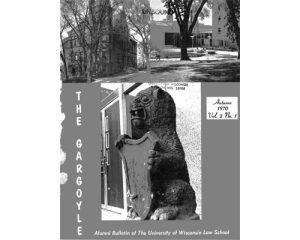
In its autumn edition (Vol. 2, No. 1), the Gargoyle article “Women Lawyers on the Increase” reported that 50 women were enrolled full-time in the Law School. The article also noted how many of these made the dean’s honor list, how many received scholarships and how many were married.
1973
Louise Trubek: ‘New Woman Lawyer Arrives in Town’
Professor Louise Trubek became the first director of the Center for Public Representation, a teaching clinic and public interest law firm that would later become the Economic Justice Institute. Upon her arrival to Madison in 1973, the local paper ran the article “New Woman Lawyer Arrives in Town.” Read about the Economic Justice Institute today.
1974
Hastie Fellowship Program Began
Nancy and Daniel Bernstine, a married couple, were the first Hastie Fellows. The program, established to honor the memory of distinguished jurist and teacher William H. Hastie, is designed to prepare lawyers of color for a career in teaching law. In 2011, a number of Hastie Fellow alums gathered to celebrate the founding director James E. Jones, Jr. Learn more about the Hastie Fellowship Program.
1975
Three Percent of State Bar Were Women
According to the State Bar of Wisconsin, women made up 3 percent of the bar in 1975. Today women account for roughly 35% of bar membership.
1976
State Supreme Court Swore in Justice Shirley Abrahamson
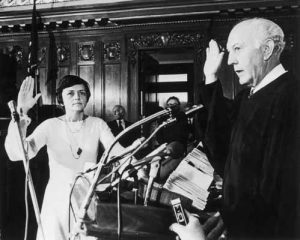
Shirley Abrahamson, who received a doctorate of law in American legal history from the Law School and later served on the faculty, became the first woman to serve on the Wisconsin Supreme Court. Later, in 1996, she became the first female chief justice of the high court. Read more about Shirley Abrahamson and five other Law School trailblazers in the Spring 2013 issue of the Gargoyle.
1977
Carin Clauss Appointed Solicitor to Department of Labor
After being appointed Solicitor of the U.S. Department of Labor, Professor Carin Clauss became the first female general counsel in a cabinet agency. She served in that capacity until joining the UW Law School faculty in 1981. Learn more about Professor Clauss in her own words with our oral history project.
1984
Wisconsin Marital Property Act Signed Into Law
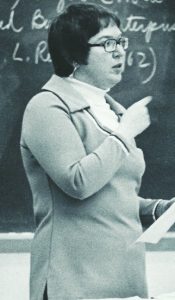
The Wisconsin Marital Property Act passed state legislature, giving Wisconsin status as the first common-law property state making “a serious attempt to introduce the concept of full sharing of the economic fruits of marriage.” Professor June Weisberger played a major role in authoring and advocating for the bill.
1985
Wisconsin Women’s Law Journal Launched
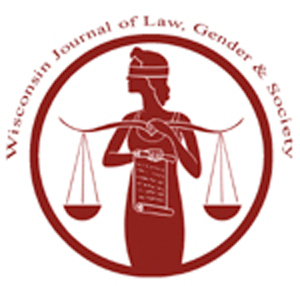
The Wisconsin Women’s Law Journal, now the Wisconsin Journal of Law, Gender and Society, published its first issue.
1989
Susan Shannon Engeleiter headed Small Business Association
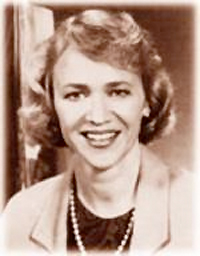
Susan Shannon Engeleiter ’81 became the first woman appointed administrator of the Small Business Association (by President George H.W. Bush). Before attending law school, she held the distinction—at 22 years of age—of being the youngest state legislator in the nation. She was elected to the state assembly in 1974.
Linda Greene Joined Faculty
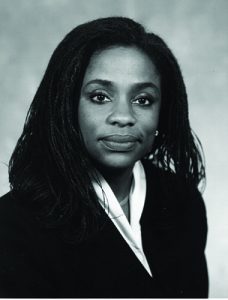
Professor Linda Greene became the first female African American member of the Law School faculty.
1991
JoAnn Jones Led the Ho-Chunk Nation
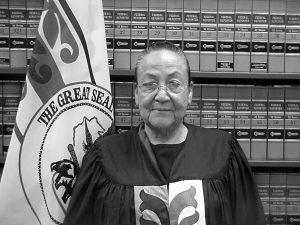
JoAnn Jones ’87 became the first president of the Ho-Chunk Nation and, to date, the only woman to serve in that capacity.
1993
Pamela Barker Led the State Bar
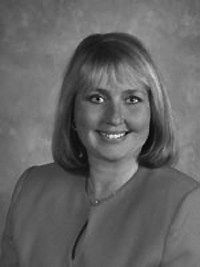
Pamela Barker ’79 became the first female president of the State Bar of Wisconsin. Four women followed Barker, three of whom were UW Law School graduates: Susan Steingass ’76, Michelle Behnke ’88 and Diane Diel ’76.
Jane Larson’s Feminist Scholarship
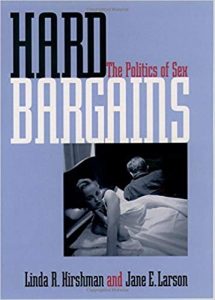
Professor Jane Larson co-authors (with Linda Hirshman) the book “Hard Bargains: The Politics of Sex.”
Judith Lichtman and the Family & Medical Leave Act
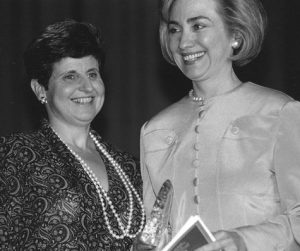
As director of the National Partnership for Women and Families, Judith Lichtman ’65 played a crucial role in the drafting and passage of the Family and Medical Leave Act, signed into law by President Bill Clinton. She reported: “President Clinton made it the first bill he signed into law, when he was barely three weeks in office. … [He] often tells people that the act was among the very best things he accomplished in office.”
1995
Alta Charo & Stem Cell Ethics
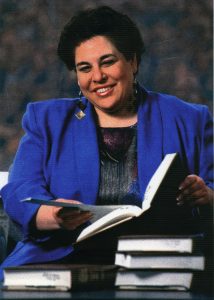
Professor Alta Charo became part of the global stem-cell community when UW-Madison researcher James Thomson sought her advice on the ethical implications of human embryonic stem cells derivation. Charo later served on the National Bioethics Advisory Commission and in 2008, to President Barack Obama’s Health & Human Services transition team, among other appointments.
View the “UW-Madison Office Hours” video featuring Alta Charo on YouTube.
1997
Sue Bauman Elected Mayor of Madison
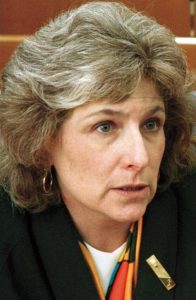
After serving as city alder for 12 years, Sue Bauman ’81 is elected the first female mayor of the city of Madison.
2000
Pilar Ossorio Joined Faculty
Professor Pilar Ossorio became the Law School’s first Hispanic female faculty member.
Center for Patient Partnerships Opened
Professor Meg Gaines became the first director of the Center for Patient Partnerships, a unique affiliation between UW Law School and the Schools of Medicine & Public Health, Nursing, and Pharmacy. Learn more about CPP.
2003
Peg Lautenschlager Elected Attorney General
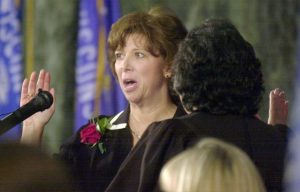
Peg Lautenschlager ’80 became the first woman elected attorney general of Wisconsin.
2009
Equal Pay Enforcement Act Passed
The Wisconsin legislature passed the Equal Pay Enforcement Act, allowing victims of wage discrimination to seek damages in state courts. However, the law was repealed in 2012.
2011
Margaret Raymond Named Dean
Margaret Raymond becomes the first female dean of the Law School. Read more about Margaret Raymond and five other Law School trailblazers in the Spring 2013 issue of the Gargoyle.
2012
Law School’s Outstanding Women of Color
Professor Tonya Brito wins UW System’s Outstanding Woman of Color in Education Award. Professor Linda Green and UW System Regent Danae Davis ’80 previously received the award.
2013
Tammy Baldwin Became U.S. Senator
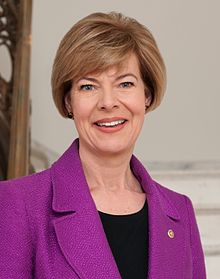
Tammy Baldwin ’89 took the oath of office to become the first woman to represent Wisconsin in the U.S. Senate. Prior to that, she served seven terms in the U.S. House of Representatives, representing Wisconsin’s 2nd district. Read more about Tammy Baldwin and five other Law School trailblazers in the Spring 2013 issue of the Gargoyle.
2014
Geraldine Hines Seated on the Superior Court in Massachusetts
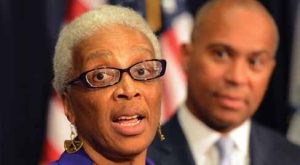
Geraldine Hines ’71 became the first black woman to sit on the Massachusetts high court, after she was nominated for the post by Gov. Deval Patrick’s and unanimously confirmed by the Governor’s Council.
2017
Kashoua Yang Elected Judge
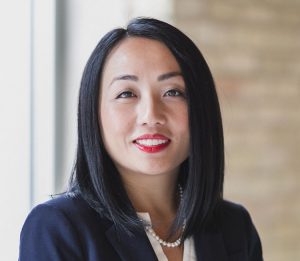
With her election to the Milwaukee County Circuit Court bench in April 2017, Kashoua “Kristy” Yang ’09 became the first Hmong judge in Wisconsin history, the first Hmong woman judge in the United States and only the second Hmong judge in American history.
